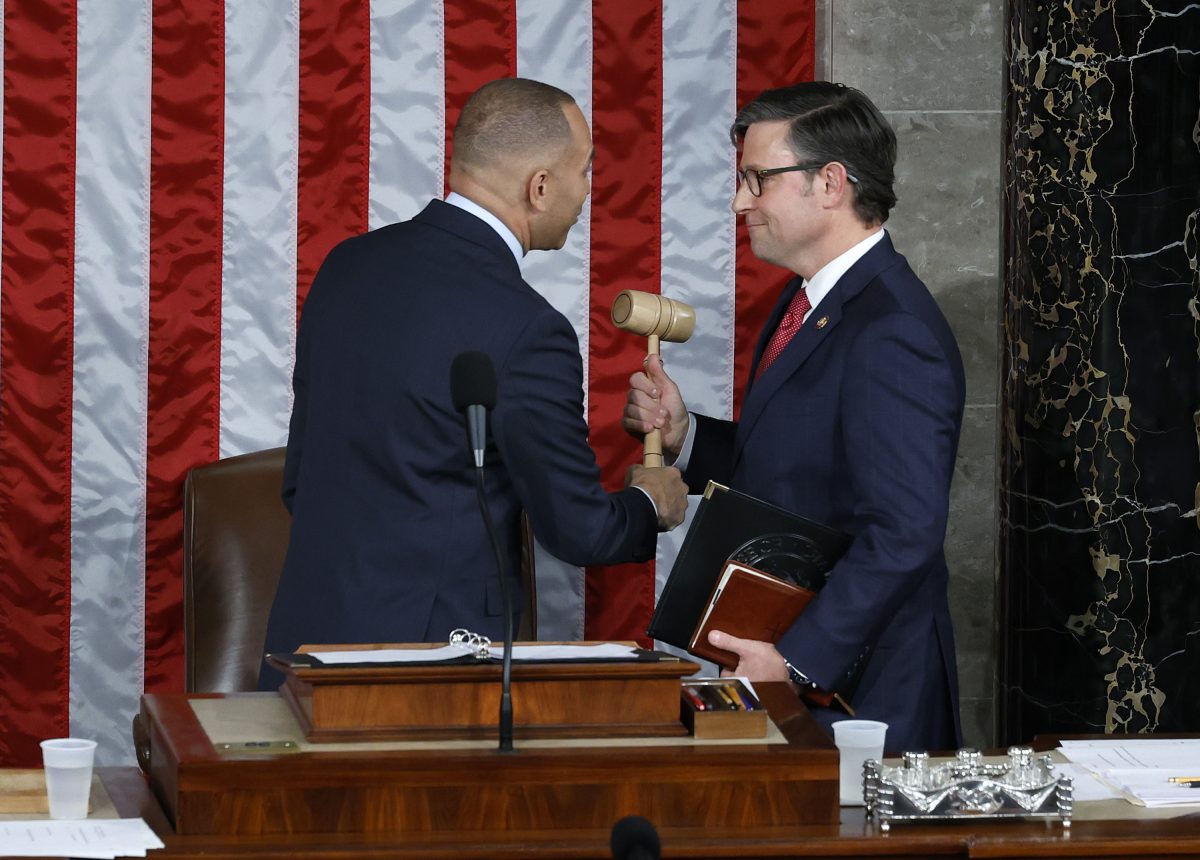On Oct.3, House Speaker Rep. Kevin McCarthy (R-Calif.) was removed from his role by members of his own party, highlighting the internal conflicts that have engulfed the Republicans over the last several months, if not years.
While intra-party fighting is nothing new in the House, it seems as though the Republicans are trapped in a constant cycle of deterioration, from bribery scandals to failing to elect a leader in a timely manner. This is the perfect breeding ground for failed relationships across the aisle, resulting in inaction on several fronts, especially when it comes to the Ukraine and Israel aid packages, which will hopefully help change the tide of both wars.
Lying scandals, conspiracy theories, and inflammatory statements are just a few of the actions by members of the Republican party gaining notable media attention, overshadowing any Congressional actions conducted by House Republicans. Instead of focusing on the interests of their constituents, the Republicans have become ingrained in scandals, and the representative nature of their position is becoming slowly casted to the side.
Before McCarthy was elected Speaker, the precedent of time spent in the role was an average of four years, with two notable exceptions being Dennis Hastert (R-Ill.), serving from 1999-2007 and Nancy Pelosi (D- Calif.) serving from 2007-2011 and 2019-2023. Evidently, aside from a few exceptions, McCarthy’s quick dismissal as Speaker broke longstanding tradition.
On Jan.7, McCarthy officially secured the Speaker’s gavel on the 15th ballot of the voting round after four days of unsuccessful votes. His drawn-out, dramatic election foreshadowed his short ten-month tenure in the role.
Between Oct. 4 and Oct. 25, for the first time ever, the Speaker of the House position was vacated. On the table lay the aforementioned massive aid package–to Ukraine, Israel, and other efforts–that contained a combined $106 billion, and one that President Biden strongly supported. Mainly due to the chaos in the House caused by the Republican’s inability to choose a speaker, this urgent bill has not been passed.
The election of the current Speaker, Mike Johnson (R-LA 4th district), was arguably just as dramatic as McCarthy’s election. Between House Majority Leader Steve Scalise (R-La.) and House Rep. Jim Jordan (R-OH 4th district), it seemed that Republicans were more inclined to vote for Scalise, who shockingly dropped out of the race due to a band of Republicans who were not willing to place their support behind him. Rep. Tom Emmer (R-Minn.) was another candidate who also dropped out of the race, even though he secured the GOP nomination as speaker delegate. Republicans were unable to pledge loyalty to one candidate.
After three weeks of lack of leadership and the eyes of the world upon this circus, Johnson secured the speaker’s gavel after one round of voting, a breath of fresh air, and a signal that the Republican party was finally able to move on.
What remains to be seen is how Johnson will work with President Biden and members of both parties over hot button issues.
Categories:
Gridlock in Congress
0
More to Discover
About the Contributor

Kate Cooper, Staff Writer
Kate Cooper is a senior and staff writer of “The Raider Voice”. While this is her first year as staff, Kate previously contributed to “The Raider Voice” as a freshman. This year, Kate is looking forward to writing about current international issues, and highlighting local businesses, especially those related to the food industry. Outside of journalism, Kate is an avid traveler who enjoys immersing herself in the local culture. Within the school community, Kate is vice president of Key Club and a Model UN team member.













